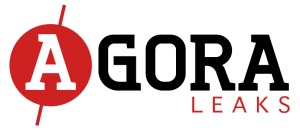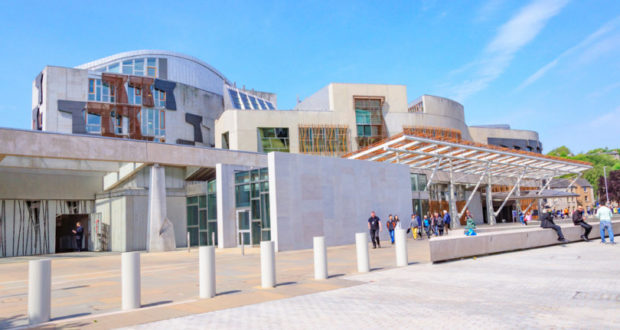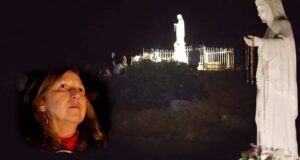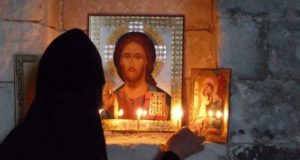ديفيد ماكلون – حذر نائب مدير المعهد المسيحي ، سيمون كالفيرت ، من أن “الحظر يذهب إلى أبعد من ذلك بكثير ويحظر أنشطة الكنيسة الأبرياء اليومية ، بما في ذلك الأشخاص الذين يصلون من أجل أصدقائهم”.
حذرت مجموعة حملة مسيحية في اسكتلندا البرلمان الاسكتلندي من أنه سيواجه إجراءات قانونية إذا مضت قدما في خطط لفرض حظر شامل على ما يسمى بـ “علاج التحويل” للمثليين ، متهمة اللجنة التي أوصت بإجراءات “التحيز”.
يقاوم المعهد المسيحي (CI) ، وهو مجموعة حملة دينية بريطانية للترويج للمثل المسيحية في المملكة المتحدة ، اقتراحًا واسعًا في هوليرود للحد من “العلاج التحويلي” للأشخاص الذين يعانون من الانجذاب من نفس الجنس وأزمات “الهوية الجنسية” ، واصفًا القانون بأنه “أكثر التشريعات تطرفاً بشأن علاج التحويل في العالم الغربي”.
يوم الثلاثاء ، أصدرت لجنة المساواة وحقوق الإنسان والعدالة المدنية (EHRCJ) بالبرلمان الاسكتلندي ملفًا من 45 صفحة يدعو إلى إنهاء علاج التحويل ، بما في ذلك “التعليم الديني أو الصلاة أو أي خطاب آخر موجه إلى فرد أو مجموعة الأفراد إذا كانت لا تقبل وجهة نظرهم حول هويتهم الجنسية أو حياتهم الجنسية ، “أوضحت CI.
يسعى الاقتراح إلى تجريم “أي نموذج أو وجهة نظر فردية تُظهر افتراضًا بأن أي توجه جنسي أو هوية جنس مفضلة بطبيعتها على أي هوية أخرى” ، وبالتالي تجريم المحادثات التي قد يعبر فيها الأفراد عن وجهات نظر تقليدية حول النشاط الجنسي البشري.
قال نائب مدير CI ، سيمون كالفيرت ، إنه في حين أن الإكراه على أي نوع من العلاج سيكون خاطئًا ، “هذه المقترحات لا تستهدف الإكراه. إنهم يستهدفون المحادثات على أساس المعتقدات ووجهات النظر الفردية “.
بينما جادلت اللجنة الأوروبية لحقوق الإنسان بأن أي جهد “لقمع تعبير الفرد عن الميول الجنسية أو الهوية الجنسية” يجب تجريمه ، حذر كالفيرت من أن التمسك بالقيم المسيحية قد يتعارض مع الإرشادات الموصى بها.
وحذر من أن “تعليم الشاب المتحول للهوية أن الله جعلنا ذكورًا وأنثى يمكن أن يُنظر إليه على أنه” يسعى إلى قمع “تعبيره عن الهوية الجنسية” ، مضيفًا أنه “يشرح لصديق مثلي الجنس تعاليم الكنيسة التقليدية بأن الجنس يجب أن يقتصر في إطار الزواج بين الرجل والمرأة يمكن اعتباره محاولة لقمع تعبيرهم عن التوجه الجنسي “.
بالإضافة إلى ذلك ، أشارت CI إلى أن سبعة من أعضاء اللجنة العشرة الذين أحالوا الحظر الموصى به إلى البرلمان وقعوا تعهدًا العام الماضي يعدون فيه بحظر علاج التحويل.
في رسالة إلى رئيس البرلمان الاسكتلندي (المتحدث) أليسون جونستون ، جادل كالفيرت بأن توقيع التعهد يعني “شعر العديد من أعضاء اللجنة بأنهم ملزمون بالإعلان علنًا عن دعمهم المسبق لشروط الالتماس في كل مرة تجتمع فيها اللجنة للتدقيق هو – هي.”
“كيف يُتوقع من اللجنة أن تمارس حكمًا محايدًا ونقديًا في حين أن معظم أعضائها قد قدموا تأكيدات مباشرة إلى مجموعة الحملة التي يقومون بفحص مزاعمهم ووعدوا بسن السياسات نفسها المطلوبة؟” سأل.
قال كالفيرت: “نشعر بالقلق من أن غالبية أعضاء البرلمان الاسكتلندي (أعضاء البرلمان الاسكتلندي) في اللجنة قريبون جدًا من حملة ECTS بحيث لا يثق الجمهور في نتائج مداولاتهم في هذا المجال الحساس لصنع السياسة”. . “من المؤسف للغاية أن مثل هذه المخاوف يبدو أنها لم تلق آذانًا صاغية مع اللجنة الأوروبية لحقوق الإنسان والعدالة. يتوقع الجمهور تدقيقا محايدا. وبدلاً من ذلك ، قدم أعضاء اللجنة وعودًا لمجموعات الحملات وأخذوا الأدلة بشكل غير متناسب من أولئك الذين يدعمون الالتماس “.
كما يوضح تقرير اللجنة بالتفصيل الإجراءات التي تم اتخاذها في البلدان الأخرى حيث تم بالفعل تشريع “علاج التحويل” بشكل ما. على وجه الخصوص ، تم الإشادة بحظر الصلاة والاستشارة في فيكتوريا ، أستراليا ، لشخص منجذب من نفس الجنس (SSA) للعيش وفقًا للقانون الطبيعي ، حتى لو سعى شخص SSA إلى مسيحي لهذا الغرض بنفسه ، في تقرير اللجنة.
وجاء في التقرير أن “تشريع فيكتوريا في أستراليا يقدم أحد أفضل الأمثلة على الممارسات”.
تم توفير شرط في التقرير ، نقلاً عن الناشطة البريطانية الجنسية المثلية جين أوزان ، لـ “نوع الصلاة التي تخلق مكانًا مفتوحًا وآمنًا يمكن للناس الذهاب إليه وحيث تكون أي نتيجة مقبولة وصحيحة جيدة ويجب تشجيعها”. ومع ذلك ، يواصل أوزان القول إنه “عندما يكون هناك غرض محدد مسبقًا [في الصلاة] أعتقد أنه يجب حظره.”
وردا على ذلك ، قال كالفرت إن التعبير عن تعاليم الدين المسيحي “يحميها قانون المساواة وحقوق الإنسان ولا يمكن للبرلمان أن يحظرها.”
وصرح قائلاً: “إن حظر علاج التحويل غير المدروس في البلدان الأخرى يُقاوم بشدة من قبل الكنائس” ، “ليس لأنهم يرغبون في ممارسة” علاج التحويل “، ولكن لأن الحظر يذهب إلى أبعد من ذلك بكثير ويحظر الأنشطة الأبرياء اليومية للكنيسة ، بما في ذلك الناس يصلون من أجل أصدقائهم “.
وبالتالي أصدر كالفرت تحذيرًا للبرلمانيين ، مشيرًا إلى التحدي الناجح الذي واجهته CI في عام 2016 ضد قانون “الشخص المحدد بالاسم” الشامل في اسكتلندا ، والذي كان سيسمح بتدخل غير مسبوق للحكومة في الحياة الأسرية.
بموجب المخطط بعيد المدى ، كان من المقرر تعيين “شخص مسمى” – مدرس ، مدير مدرسة ، قابلة ، أخصائي اجتماعي ، وما إلى ذلك – لكل طفل اسكتلندي حتى سن 18 عامًا ، مكلفًا بالإشراف على اهتماماته والقدرة على جمع المعلومات من الأطباء والوكالات الاجتماعية والمدارس والمحاكم والأطفال أنفسهم دون علم الوالدين.
وأشار كالفرت إلى أن “المعهد المسيحي شارك في الطعن القانوني الناجح لتشريع الشخص المحدد بالاسم حيث فشل البرلمان في تدقيق المقترحات بشكل صحيح”. “إن التدقيق غير الكافي من قبل البرلمان في هذه الحالة قد يؤدي مرة أخرى إلى رفع تحديات حقوق الإنسان ضد أي تشريع ناتج.”
المصدر: https://www.lifesitenews.com
Christian activists in Scotland threaten to sue over proposed ‘conversion therapy’ ban
David McLoone – ‘The bans go much further and outlaw innocent, everyday church activities, including people praying for their friends,’ warned Christian Institute Deputy Director Simon Calvert.
A Christian campaign group in Scotland warned the Scottish Parliament that it will face legal action if it forges ahead with plans to introduce a blanket ban on so-called LGBT “conversion therapy,” accusing the committee that recommended the measures of “bias.”
The Christian Institute (CI), a British religious campaign group for the promotion of Christian ideals in the U.K., is pushing back against a broad proposal in Holyrood to limit “conversion therapy” for people experiencing same-sex attraction and “gender identity” crises, describing the law as “the most extreme legislation on conversion therapy in the Western world.”
On Tuesday, the Equalities, Human Rights, and Civil Justice Committee (EHRCJ) of the Scottish Parliament issued a 45-page dossier calling for an end to conversion therapy, including “religious teaching, prayer or other speech directed at an individual or group of individuals if it does not accept their view of their gender identity or sexuality,” the CI explained.
The proposal seeks to outlaw “any model or individual viewpoint that demonstrates an assumption that any sexual orientation or gender identity is inherently preferable to any other,” thereby criminalizing conversations in which individuals might express traditional views on human sexuality.
CI Deputy Director Simon Calvert said that while coercion into any kind of therapy would be wrong, “these proposals don’t target coercion. They target conversations based on beliefs and individual viewpoints.”
While the EHRCJ has argued that any effort to “suppress an individual’s expression of sexual orientation or gender identity” should be criminalized, Calvert warned that holding Christian values could fall foul of the recommended guidance.
“Teaching a trans-identifying young person that God made us male and female could be viewed as ‘seeking to suppress’ their expression of gender identity,” he cautioned, adding that “explaining to a gay friend the Church’s traditional teaching that sex should only take place within man-woman marriage could be deemed an attempt to suppress their expression of sexual orientation.”
In addition, the CI noted that seven of the 10 members of the committee forwarding the recommended ban to Parliament signed a pledge last year promising to ban conversion therapy.
In a letter to the Scottish Parliament’s Presiding Officer (Speaker) Alison Johnstone, Calvert argued that signing the pledge means “many of the Committee members have felt obliged to publicly declare their prior support for the terms of the petition every time the Committee meets to scrutinize it.”
“How can the Committee be expected to exercise impartial, critical judgment when most of its members have given assurances directly to the campaign group whose claims they are scrutinizing and have promised to enact the very policies being sought?” he asked.
The allegation of bias was further substantiated by the group, noting in particular that some members have openly expressed “unqualified support” for the End Conversion Therapy Scotland (ECTS) activist group through their social media accounts, and that the committee held at least one closed-door meeting and did not subsequently produce notes.
“We are concerned that the majority of MSPs [Members of the Scottish Parliament] on the Committee are too close to the ECTS campaign for the public to have confidence in the outcome of their deliberations in this sensitive area of policy-making,” Calvert said. “It is very regrettable that concerns such as these seem to have fallen on deaf ears with the EHRCJ. The public expects impartial scrutiny. Instead, Committee members have made promises to campaign groups and taken evidence disproportionately from those supporting the petition.”
The committee’s report also details measures taken in other countries where “conversion therapy” has already been legislated against in some form. In particular, the banning of prayer and counsel in Victoria, Australia, for a same-sex-attracted (SSA) person to live in accordance with the natural law, even if the SSA person sought out a Christian for this purpose themselves, was lauded in the committee’s report.
“The Victoria legislation in Australia provides one of the best practice examples,” the report reads.
Provision is given in the report, quoting British homosexual activist Jayne Ozanne, for “the sort of prayer that creates an open and safe place into which people can go and where any outcome is acceptable and right is good and should be encouraged.” However, Ozanne goes on to state that “when there is a predetermined purpose [in prayer] I think that must be banned.”
Countering, Calvert said that expressing the teachings of the Christian religion “is protected by equality and human rights law and the Parliament can’t outlaw it.”
“Ill-thought-out conversion therapy bans in other countries are being strongly resisted by churches,” he stated, “not because they wish to practice ‘conversion therapy,’ but because the bans go much further and outlaw innocent, everyday church activities including people praying for their friends.”
Calvert consequently issued a warning to parliamentarians, noting the CI’s successful challenge in 2016 against the sweeping “Named Person” law in Scotland, which would have allowed an unprecedented intrusion of the government into family life.
Under the far-reaching scheme, a “named person” — a teacher, school administrator, midwife, social worker, etc. — was to be assigned to every Scottish child up to age 18, tasked with overseeing his interests and able to gather information from doctors, social agencies, schools, courts, and the children themselves, without the parents’ knowledge.
“The Christian Institute was involved in the successful legal challenge to the Named Person legislation where Parliament failed to properly scrutinize proposals,” Calvert noted. “Inadequate scrutiny by Parliament in this case may again result in human rights challenges being brought against any resulting legislation.”
 Agoraleaks Agoraleaks
Agoraleaks Agoraleaks







